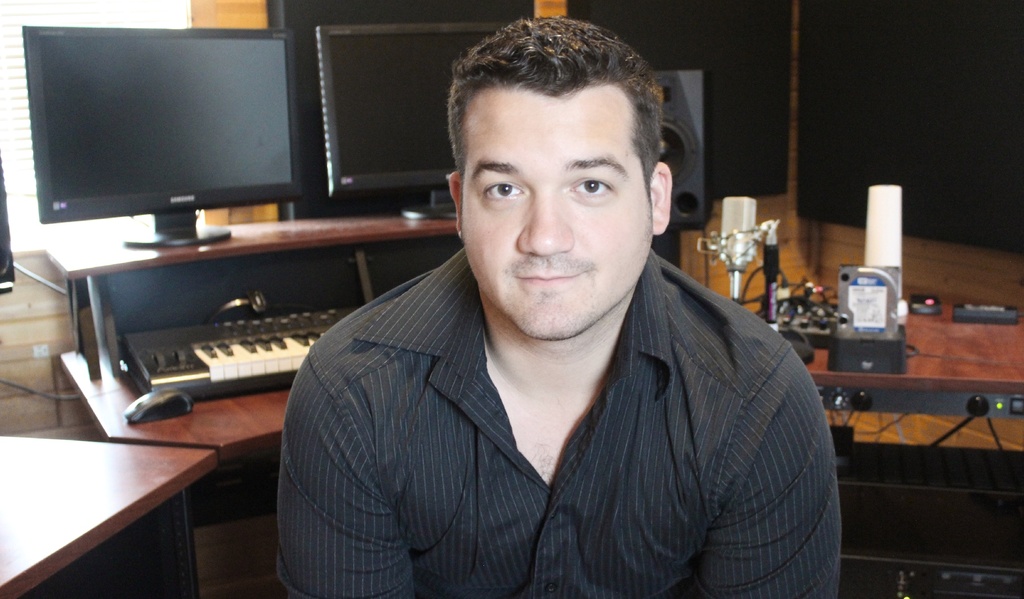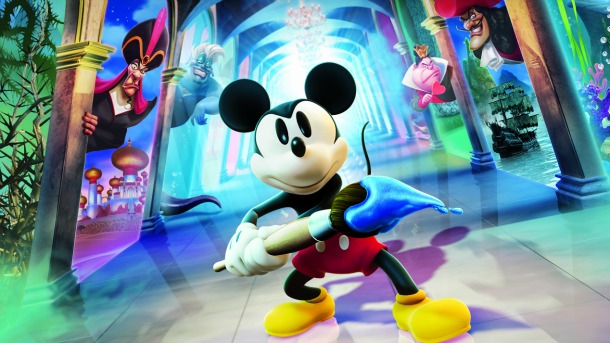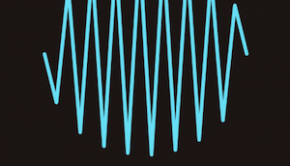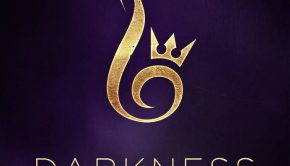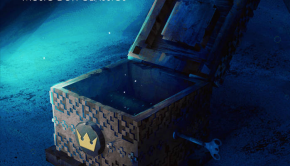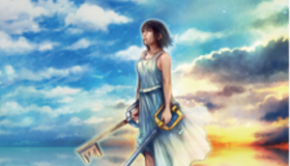Sean Beeson Interview: Hollywood-Quality Scores for iOS
Sean Beeson has is one of the leading composers for the ever-growing iOS games market. Having worked on over 100 titles, his music spans both small-scale titles and high-profile works such as Ravensword: Shadowlands, Mecho Wars, Goop, and Disney Epic Mickey: Power of Illusion.
In this interview, Beeson gives an update about his work. In addition to giving general insight into his musicality, he focuses in on several of his major recent projects, including Disney Epic Mickey: Power of Illusion and Ravensword: Shadowlands. He rounds off the interview by discussing his fascinating non-game works and giving an exclusive preview of two of his newest game scores, Aralon 2 and Sky Sword. So you can gain a richer appreciation of Beeson’s music, we’ve included plenty of embedded YouTube, Bandcamp, and SoundCloud samples along the way.
Interview Credits
Interview Subject: Sean Beeson
Interviewer: Chris Greening
Editor: Chris Greening
Coordination: Chris Greening, Ashli Norton
Interview Content
Chris: Sean Beeson, it’s a pleasure to talk to you. First of all, could you tell us about how you came to fall in love with games and music?
Sean Beeson: I have always been interested in technology, computers, and anything that made noises!
I was born in a small town in north-central Ohio (Shelby) and had a normal late 80’s upbringing. My dad had a few Atari’s from his college days that my brother and I played all the time, and that was what hooked me on games. We were also constantly playing the classic Sierra titles (King’s Quest, Space Quest) while sitting on his lap. I couldn’t read or write at that age, but just being immersed in the adventure was enough to hook me!
A few years later my parents bought my brother and I a Sega Genesis. I was constantly playing games like Strider, Altered Beast, Gain Ground, King’s Bounty, and Castle of Illusion, all of which have scores that to this day still are fresh in my head. I used to record the music (with a cassette recorder) and carry it around with me. Yeah I was that kind of a nerdy kid haha. I think I even brought in a few gameplay VHS tapes to show in tell.
Chris: Did this lead you to make your first compositions?
Sean Beeson: When I was about eight years old, my uncle bought me a little casio keyboard, and I was intrigued about the “synthesis” aspect of it all. Of course back then I was more like “Oooohh! That sounds like Sega!” Since then I have never stopped playing games or musical instruments. I began composing pieces based off of other popular pieces, changing melodies and words, and eventually began to compose my own piano pieces. A lot of those “variation” compositions sounded a lot like Sega+Sacred Hymns haha.
Having written music through all of high-school I decided to pursue a BM in Music Composition at Capital University. I graduated in 2007 and have been writing for clients across the globe ever since! I guess you could say my love for composing and gaming is fueled by my interest in technology! If I could have been a game artist or programmer, I think I would have pursued that as well. I was always attempting to design games, make art, create 3D models.
Chris: The majority of your scores were composed for iOS titles. Could you tell us how you came to work in this area? What do these projects demand technically and musically?
Sean Beeson: I was initially attracted to working on iOS titles simply because I love to play iOS/handheld games! Especially now that I have three kids, my hardcore gaming days are far and few, but I can just jump on the 3DS, iPad, Vita, and crank out some game time every day.
As primarily an orchestral composer, I am not sure the musical demands of any mobile platform are any different than if I was scoring a console title or a blockbuster film, or at least I don’t treat it any differently! There are some technical limitations of working with any mobile device; however many of those limitations (OTA size, compression, streaming, memory) that were real issues two to three years ago, are no longer major concerns. I do have a difficult time convincing some clients why they need more than 60-seconds of music though or why the music can’t have more bass through the smaller speakers of many mobile devices.
There is an evolution going on in game audio, especially in the handheld field. Hopefully soon we won’t refer to it as handheld or mobile, as if it is an inferior form of audio. The quality of audio that my colleagues are creating for games, regardless of platform, is fantastic!
Chris: Among your best-known works are Mecho Wars and Mecho Wars HD: Desert Wars. Could you elaborate on how you approached each of these titles? Do they feature similar approaches?
Sean Beeson: I approached scoring Mecho Wars the same way I would a game that required a full orchestral score, but wanted it to contain timbres, tones, and colors not native to the acoustic orchestral palette. In effect, I treated acoustic instruments the way I would treat electronic timbres, and integrated synthesized sounds as organically as possible. Looking back, it was a relatively successful amalgamation and has been a cornerstone for some of my modern hybrid scores.
However the soundtrack for Mecho Wars HD is completely different! I went back to my orchestral roots to create an epic, un-authentic, ethnic adventure soundtrack. Most of the music is quite linear and there aren’t many recurring motifs throughout the soundtrack. There were quite a few cues that I wrote out of sheer entertainment for the score, thus explaining a few of the more unusual tracks.
Chris: You recently scored the major fantasy RPG sequel Ravensword: Shadowlands. How did you capture the diverse settings of this title? And what inspired your encompassing main theme for the game?
Sean Beeson: Ravensword: Shadowlands was composed over many months, and fortunately inspiration came naturally while looking at screenshots and discussing the game world with the developer. There is, however, something about the nature/outdoorsy-ness of games like Ravensword that I feel I can relate too. Perhaps it is the serenity of it all that truly draws my heart to it.
The main theme was inspired by the power I felt when I first saw screenshots of the game. I felt I needed to direct that power through deep drums, bellowing brass, and manly choirs, and so the instrumentation flowed directly from that. The main motif however was a variation of one used in a few other cues in the game, but I am pretty sure I ended up changing some of those melodies after I based the theme off them.
Chris: Despite being created on a most budget, these scores often have the feeling of Hollywood blockbusters. How did you maximise the quality of these pieces?
Sean Beeson: Honestly, I just spend a lot of time producing the pieces! I will compare them to other mixes of similar styles of music, go back and tweak mine and then usually sleep on it. Wake up, do the same thing all over again. My digital orchestrations won’t ever replace human players, and nor do I wish for them to do that, but I try my best to match the human nature of performing music by detuning notes, mimicking their playing abilities, and even putting in the occasional mistake. The more life I can breathe into the “performance” the more realistic it will be.
My previous experience working with orchestral sample libraries and creating sample libraries has been incredibly helpful. Rarely do I use any sounds straight out of the box. I will either customize them with filters and controller mods, synthesize my own, or record and create my own. A composer who has mastery over their technology will have a better mastery of their own music and production.
Chris: Since we last spoke to you, you have started to publish your soundtracks, notably Ravensword: Shadowlands and Dangerous, digitally through great platforms such as Bandcamp and iTunes. What inspired you to start doing this? Can we expect more releases like this in future?
Sean Beeson: People wanted to buy them! I receive many emails from random listeners asking to purchase the soundtracks that I create all the time or in rare cases just wanting to donate money to me for allowing them to listen to so much of my music online. In the past, I would self-produce the soundtrack and send it to them and they would pay me directly, but now the demand is high enough from a larger audience that I just can’t keep up with it.
Having awesome platforms like Bandcamp helps make the decision easier to release the music digitally. They take a lot of the leg work and guessing out of it! I do hope to do more releases like this in the future, although many developers I am working with now want to publish my music under their own labels. Today, the interest in game music is unparalleled. Every client I work for that has hired me to create enough music for a soundtrack insists on releasing one. No going back now!
Also, I should note that while not all of my scores are released as soundtracks, though they have all been put on SoundCloud for free. It a great promotional tool for the games, and for my business, as a lot of my clients have discovered my music through promotions generated by the albums.
Chris: More recently, you were asked to compose the 3DS’ Disney Epic Mickey: Power of Illusion. Could you tell us more about how you landed this gig and what it was like to work under Disney Interactive Studios. Did your Pixie Hollow soundtrack help?
Sean Beeson: It is kind of a strange story of how I came to score Power of Illusion. I was referred to their creative director by two completely different people. I think one of them knew I was a huge fan of Castle of Illusion (Genesis) while the other one was being considered as the potential composer, knew my familiarity with the Disney composing style, and was busy with his other gigs. In short, he referred me (threw me a bone) and for that I am immensely grateful! It was an awesomely fun gig, and I would do it again in a heartbeat.
Writing music for Pixie Hollow did help in a roundabout way. The musical vernacular between the games was similar albeit the styles completely different. Some of the music in the game (written by James Dooley) is from other Epic Mickey titles (like the opening theme), so I can’t claim to have written it all.
Chris: Even back when we originally interviewed you, you said that Castle of Illusion was one of your favourite games and soundtracks. How did you pay tribute to this game while continuing the epic orchestral feel of Epic Mickey?
Sean Beeson: As a kid, I played Castle of Illusion through dozens of times (although I only remember beating it once. Those last two levels were brutal!) and so it has been a highlight of my career to get to work with DreamRift on Power of Illusion.
I actually had to do a few full orchestrations/adaptations of the original pieces in Castle of Illusion. Being a big fan of the original, it helped that I didn’t have to go back and listen to them a bunch, they were all still very fresh in my mind. The original stuff I wrote melodically didn’t pay much tribute at all to the Castle of Illusion score; however stylistically it possesses a lot of the same uplifting, happy, writing. Many of the pieces do share similarities to their film counterparts as well.
Chris: With the exception of Disney Epic Mickey: Power of Illusion, most of your video works have been for independent and small developers. Are you satisfied with this or would you one day like to score larger-scale game or film projects?
Sean Beeson: I may or may not be scoring a blockbuster game as I type this, haha… I have said too much! Hopefully you will hear about this later this year.
As for the size of the games I score? I always wish I could score larger games, not for musical purposes but simply to reduce the stress of always having to constantly hustle for work! What I am scoring is also a big investment, and I take my work very seriously. We are reaching a point where the developer, the platform, and the scale of a game is almost erroneous.
I urge people to listen to my music. Is it really that different from larger, blockbuster games? I try to treat every game, big or small, as my next big, blockbuster, breakthrough score. Even if the games are tiny, every step forward I make is the biggest one I can take at that time. Of course, would I jump at the opportunity to score the next big game? The next cult classic? The next best seller? No doubt!
Even if I didn’t write music for games, I would still be a hardcore gamer. Now, I wouldn’t ever turn down an exciting film gig, or the next big TV show, and have recently been doing a lot of ad work, but if I had to pick only one, it would have to be games!
Chris: On that note, you have in fact recently produced a different type of music for visuals for the ballet Illuminated Tapestry. Could you tell us more about this production and the music you developed for it? Was this a rewarding role for you?
Sean Beeson: Illuminated Tapestry is an interactive ballet accompanied with interactive visuals. The music creation/arranging process took approximately a year of work on and off. The whole time Jimmy Orrante (Choreographer) was formulating ideas and developing the story behind the music, while Alan Price (Visuals) from OSU ACCAD was developing a system and method of motion tracking using Kinect cameras to track the motions of the dancers. He then developed middleware to interface with a sequencer to form the generative music, and visuals that matched the music AND interacted with the dancers.
I can honestly say that my music (although important) was such a small part of the total production, and the work experience that Jimmy and Alan brought to the table was instrumental in creating a multimedia feast for the eyes and the ears! It was incredibly rewarding to be able to collaborate with Jimmy, Alan, Gerard (Creative Director of BalletMet), and all of the dancers.
Chris: Beyond games, you have composed concert works, such as an excellently received snare drum concerto. Could you tell us more about how you approached this magnum opus? How does it feel to have your works performed by greats like Dame Evelyn Glennie?
Sean Beeson: Prometheus Rapture was actually a collaboration between myself, Adam Lochstampfor (Snare Composer), Stefan Podell (Orchestrator), Anthony Green (Piano Redux) and Brenton Dunnington (Creative Director). I had very little experience in writing concertos, especially a snare drum concerto, so I teamed up with them to create this piece in a very short period of time. The approach was to create something fun, exciting, challenging, and entertaining, and thus the piece is a non-stop journey through various styles of music at an alarmingly quick rate.
I felt honored when Evelyn first performed it and feel humbled that she still performs it to this day. Jeff Queen, an award-winning American snare drummer, has also been performing the piece a lot stateside, and it is just as humbling to know that our work is being appreciated by them and many other percussionists out there. They are very appreciative of the work we created. Super-cool!
Chris: In the past year, you have continued to work on a spectrum of projects. Could you tell us a bit more about your latest ones?
Sean Beeson: Here are two of my latest scores, both of which are being premiered here with you!
The first sample is from the upcoming sequel to Aralon, one of the most successful RPGs for iOS. The score is primarily orchestral but features ethnic colors, electronic elements, and vocals fitting for the environments of the game!
The above sample is from the game Sky Sword. It is a modern take on a classic platformer and the score is set to match! However, the retro sounds are complemented with orchestral motifs and Mediterranean hints!
Chris: Many thanks for your time today, Sean Beeson. Do you have any message to the people reading this?
Sean Beeson: Thanks for your time Chris, and thank you for anyone who read this far. You can hear my music at my official site. Also, please add me on SoundCloud, Facebook, and Twitter. Also feel free to email me directly. Thank you.
Posted on April 9, 2014 by Chris Greening. Last modified on September 28, 2014.

